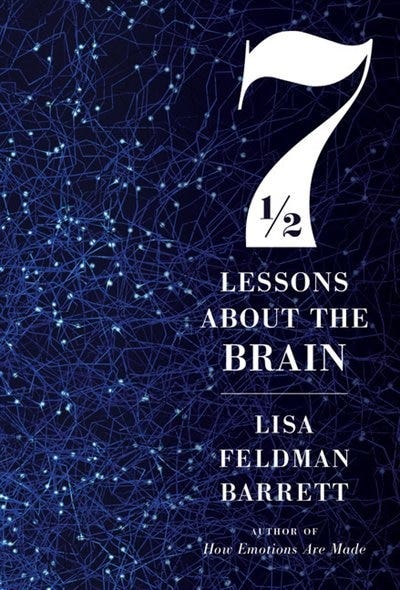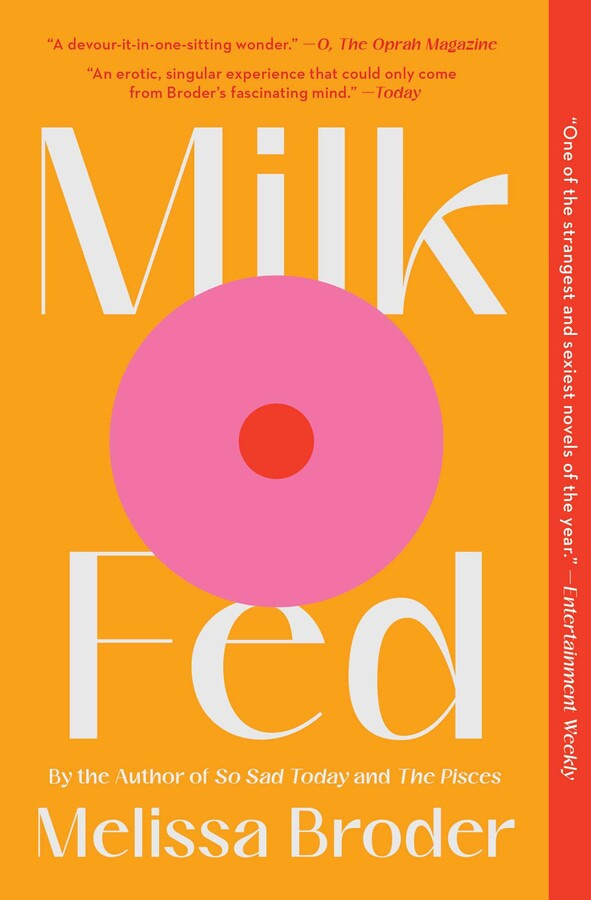What a strange, distracted year in reading this was. First three months of it I actively avoided reading because I had a manuscript to finish. I prefer other people’s writing to my own at the best of times, but particularly when I’m working on something myself, so I had to actively forbid myself to read for a month or two. There are fewer books than usual, and an unusual number of celebrity bios. Here goes.
NON-FICTION
There’s a lot of new scholarship coming out on Simone de Beauvoir, which is great news. Kate Kirkpatrick’s Becoming Beauvoir is a bio that centres Beauvoir away from her adjacent-to-Sartre position, treats her as an independent thinker and documents how she influenced Sartre, while a lot has been written of the traffic going in the opposite direction. We Are Not Born Submissive by Manon Garcia is a beautifully compact (just 200 pages) and cogent essai zooming-in on one particular aspect of Beauvoir’s work: her writing on the rewards and pleasures of submission, given to women by the societies they live in. It can get really comfortable and safe not questioning your prescribed path, and it can get lonely and nauseously free when you do question it. There are probably women in a harem which lead happy lives, wrote Beauvoir… but freedom, not happiness, should be the measure of a woman’s life. And by freedom she didn’t mean consumerist choice approach to life of the SATC characters. I also kept dipping this year into Meryl Altman’s monumental Beauvoir in Time which really is a gorgeous Beauvoir encyclopaedia that looks at the many disparate aspects of her writing (black liberation, lesbians, French colonialism, China, the Anglosphere).
Lisa Feldman Barrett’s 7 ½ Lessons About the Brain was a quick and fascinating update on where the brain science finds itself at the moment. The paradigm of a receptor brain which processes incoming sensory data has been abandoned in favour of a deeply body-dependent, almost autonomous system that keeps predicting (instead of passively waiting for information) in order to keep us alive and well-oriented. “If your brain has predicted well, then your neurons are already firing in a pattern that matches the incoming sense data… What you see, hear, smell, and taste in the world and feel in your body in that moment are completely constructed in your head. By prediction, your brain has efficiently prepared you to act.” If the prediction is the wrong one, hopefully information is taken in and next prediction improved. But sometimes brain remains faithful to the old predictions and ignores the sense data. (What else is new.) “Brains aren’t wired for accuracy. They’re wired to keep us alive.” And what she calls the “final nail in the coffin of common sense”: all this predicting happens backward from the way we experience it. Just look for the LFB episode of the Sam Harris podcast if you want to hear more from her on this, but the book itself is a great little thing and a fast read.
I’ve written about Kathleen Stock’s Material Girls on Long Play earlier this year, and between the coming of the book and her leaving her teaching post at Sussex, Stock has become an internationally known figure (Charlie Hebdo just did an interview with her!). I’ve also read Helen Joyce’s Trans, a book on how the recent rise in trans self-ID activism around the globe happened, what its effects already are and what its proposed changes would lead to. As a writer (and interview subject) she’s full of verve, and always worth paying attention to. Lisa Selin Davis’ Tomboy, on the other hand, was a bag of mixed and contradictory concepts. As do her recent and excellent op-eds, her book celebrates the almost forgotten cultural figure of the “tomboy”, what we’d now call gender-non-conforming girls who grew up (and many stayed that way) rejecting the activities and rewards of the traditional and commercialized femininity. I’ve learned for example that the 1970s were the peak of the gender-neutral toys and clothes in the US (everybody, and I mean chiefly commerce, has thoroughly re-genderized childhood into the pink and blue tier since), and that there are many tomboys in the nineteenth century literature apart from Jo in Louisa May Alcott’s Little Women. LSDavis however uses the terms “assigned female at birth” (instead of female or woman) throughout the book, and also “cisgender” and “gender identity”, as if they are neutral, standard terms and not concepts coming from a very specific worldview that more often than not reads the non-conformist girls as “trans boys”.
I’ve also written on here about Stephen Kimber’s bio of Alexa McDonough, and about Andrew Hankinson’s history of the Comedy Cellar. Katherine Taylor’s Toronto, City of Commerce also inspired an edition of LP.
Other notable n-f books of the year: Elizabeth Anderson’s Private Government: How Employers Rule Our Lives, the already highly influential Testosterone by Carole Hooven (her exchanges with Cordelia Fine are expected to be published in the new year), Ronald J. Deibert’s Reset: Reclaiming the Internet for Civil Society (the Citizen Lab honcho). Lennie Goodings: A Bite of the Apple: A Life with Books, Writers, and Virago was a fun memoir on how Virago was created and in what form it persists (now as an imprint in a much bigger company). Sebastian Payne’s Broken Heartlands is as good a first-draft-of-history as they get: he’s talked with everybody, visited every relevant office, dock, wind farm, back yard.
I’ve also read four celebrity memoirs this year… Sandi Toksvig’s Between the Stops, Joan Bakewell The Tick of Two Clocks, Katherine Ryan’s The Audacity and probably the best written of the four, Eileen Atkins, Will She Do.
Also read: Julia Zarankin, Field Notes from an Unintentional Birder.
FICTION
Andrej Nikolaidis’ The Hungarian Sentence is a riff on Mathias Enard’s one-sentence Zone, except set in the Balkans and the Austrian-Hungarian circle. Olya Knezevic Catherine the Great and the Small is a sort of Pedro Almodovar-Douglas Sirk-ian take on growing up in a female-heavy household in the communist-era Montenegro. Nick Hornby’s Funny Girl must be one of his lesser novels? Didn’t get much out of it. Amanda Craig’s The Golden Mean also left me cold… Virginia Feito’s Mrs. March, which I bought after reading the stellar reviews she got in the British press, must be the overhyped-yet-disappointing book of the year. It’s clearly written straight for the film rights (Elizabeth Moss got’em, which not a single review fails to mention) and it’s a sort of Repulsion but written for David Lynch. Graham Swift’s Mothering Sunday is a “meditation” on class and writing which adds nothing to the conversation (it too sold film rights; the trailer and the reviews are good). David Szalay’s Turbulence is cleverly structured, but a bit empty. Josephine Tey, Miss Pym Disposes, I sought after the eponymous episode of Backlisted podcast, and d’you know, I think I’ve gone off Backlisted. I just don’t find their conversations and their guests that interesting any more. I check in occasionally, but there isn’t a whole lot of pleasure in it. And whenever I read something that they’ve gushed about for 1hour-plus, I wonder if we live on the same planet.
In much better news, Claudia Piñeiro’s Elena Knows (a physically incapacitated narrator treks across Buenos Aires to “solve” the mystery of her daughter’s suicide), Emma Glass’ Rest and Be Thankful (exhausted hospital nurse slowly falling apart in a seemingly endless shift), Nicola Barker’s I am Sovereign (a novel that takes place during a 20-minute house viewing in Llandudno, Wales), Brian Francis Missed Connections, Steven Galloway The Cellist of Sarajevo, and Leaf Arbuthnot’s debut Looking for Eliza.
This year I think I realized that I’d always seek out anything that Gwendoline Riley, Sarah Moss or Elizabeth Strout come up with. Riley’s latest, My Phantoms, is a book I didn’t love but that I, how shall I put it, thoroughly recognized. Everything about it was so accurate, but the narrator’s trajectory from an uneducated to a very educated book-reading class – and her simultaneous liberation from her family – left a strange taste. Maybe that’s the idea? We care for the narrator, we get her path, but it presumes jettisoning everything familial in the ascension to a middle class perch from which she can legitimately look down? If any of you have read Phantoms, I want to hear your impressions. Sarah Moss recently had a lockdown novel out, called The Fell, but it’s not yet available here so I got hold of the next last, Summerwater, which is about a group of vacationers in a northern Scottish chalet-ville where the rain just won’t stop. And as for Elizabeth Strout, I am seriously late to that party, aren’t I? Lucy Barton is just exquisitely withholding, and so sharp about class, something rarely seen in American fiction today.
I also caught up on Zadie Smith’s On Beauty, which must be her best novel? It’s a total delight, and E.M. Forster wouldn’t object for a second.
Also here in the LP Towers, I had a great pleasure to talk to two Canadian writers whose work I admire, Zsuzsi Gartner and Stephen Henighan. They both had a novel out this year, The Beguiling and The Word of After, respectively. Do read their Q&As if you haven’t.
The Hot Damn Award for the sexiest fiction of the year goes to Melissa Broder’s Milk Fed.
Thank you for your company, and your emails and comments this year, and please keep them coming!
xo
LP





You put me to shame with this reading list. Since the start of the pandemic, I've been obsessed with cheesy gay male romance novels. (I had no idea such a thing even existed before.) Right now I have to get back to finding out when — not whether, of course — the NYPD detective and the FBI special agent will accept their love for each other while on assignment to hunt down the so-monikered Twelve Days of Christmas Killer together. I am so shallow, hah!